Tim was one of the 172 riders signed up for the 2015 Transcontinental Race (TCR) – a 4000km race across Europe with no support, no set route, just the need to hit 4 checkpoints between the start and end points.
The gruelling annual race, organised by Mike Hall & co, is picking up more and more momentum each year and rightly so. With the live spot-tracking and it is exciting to follow the highs, lows and hardships; only half of the 172 riders made the finish line in Istanbul this summer. Having now taken on such a race, and with attention turning to next year’s 2016 Edition, we asked Tim “Rider 78” to reflect on his experience this year and sum up what he believes is important to grasp if, and when, touring progresses to racing…
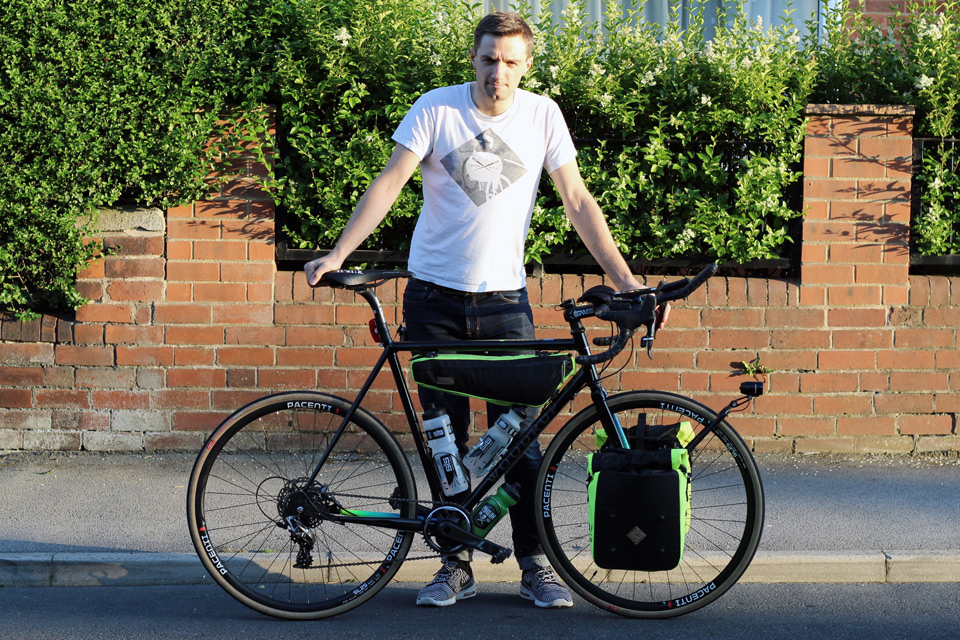
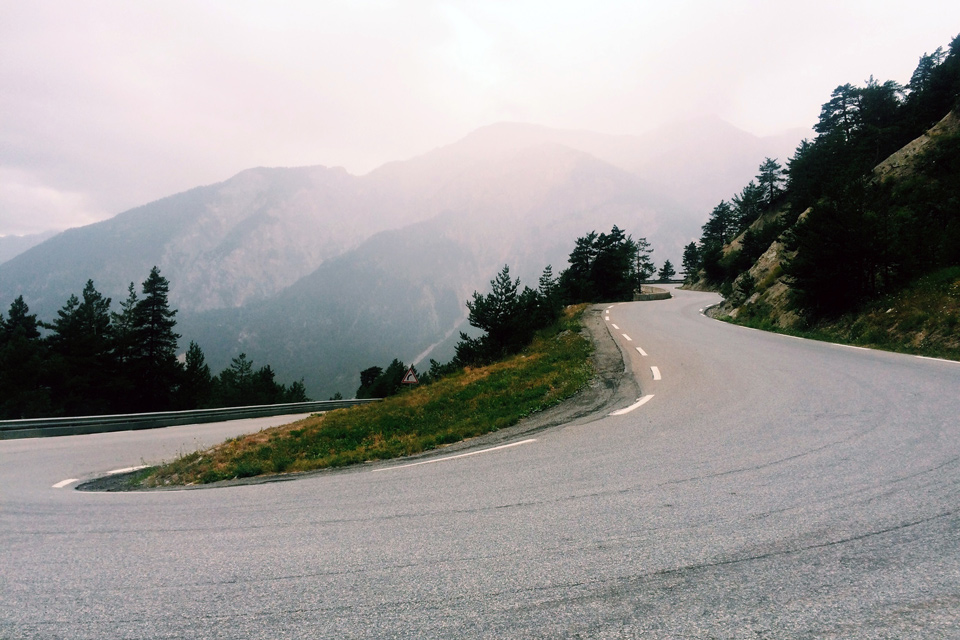
"The Transcontinental is a beautifully hard bicycle race, simple in design but complex in execution. Factors of self sufficiency. logistics, navigation and judgement will burden the racers’ minds as well their physiques..."
I entered the 2015 Transcontinental Race as a challenge, something I knew I wouldn’t necessarily win but, hopefully, would finish. I’d not really come across anything about the race until I saw guys like Martin Cox (road.cc) and Gabby & Ben (Charge Bikes) tweeting about their adventures in 2014 – covering crazy distances and experiencing both euphoric and desperate moments. For some odd reason this all really appealed to me, it seemed like an incredible opportunity to see Europe. Exploring Europe by bike…
Endurance cycling isn’t something you can go into light heartedly though. Before I set off this Summer I thought I had a really good understanding of racing and the best ways to train for riding long, long distances. Eight months after my application for a place in the race was accepted, I had completed several 300km rides (which is what I anticipated a ‘day to day’ ride to be), bivvy nights at the side of the road, and consumed more Soreen than any other item of food.
However, for this type of event you can only prepare so much – things like route homework and kit setups. It wasn’t until I immersed myself into the TCR that I realised navigational faults, food and water stops, finding somewhere to sleep, or minor injuries could lose so much time. Touring and racing are different, sure, but in the context of such a huge endeavor like the TCR the boundaries are blurred because you are essentially travelling by bike, unsupported. However, it is counter-productive to think that way – the TCR is competitive in it’s nature, that is a key difference. The Transcontinental is a race competing against other riders, and against yourself, to ride as many kilometers as you can, as quickly as possible.
On my 300km training rides I tried to take a touring attitude: I took my time to get ready before cycling a long day; I took time to stop; I took time to eat off the bike. However, here are a few observations that mean riding with a touring mindset isn’t the best way to take on endurance races:
1 | The Clock Is Always Ticking...
Time. It’s something we all complain about – there’s never enough, we always want more and we lose so much of it day dreaming about getting lost on a bike! We also complain about not being fast enough, not being efficient enough and always wanting to ride quicker. From the minute I arrived at the race registration, I felt a continuous pressure against time.
It’s a competitive race as soon as you pedal off from the bunch start. But, no less than 10 kilometers down the road you are on your own and all of a sudden panic and anxiety sets in. You’re no longer riding against the person you can see in front or behind, it’s just you against yourself and the decisions you make along the way: food and water stops; toilet stops; sleep stops; bad moods; sores and aches; navigation etc. Everything becomes a chore and seems to take 10 times longer than you think. It’s a race against time – you want to go as fast and be as efficient as possible. But, in attempting to not waste time you can too easily make stupid decisions and push yourself too hard: somehow justifying not having time for a wash, or stopping to put lights on ahead of a tunnel for example.
I thought stopping for food would be a relatively easy routine: in, bakery, fruit, water, done, out. There’s so many things that got in my way each time: securing and worrying the bike; queues; what food?; food for later; finding money; packing the bike; eating; un-locking and getting back on the road. All these tasks seem straightforward but you lose so much time in the whole process and you end up kicking yourself about it.
The main thing to consider when approaching an endurance race like the TCR is any time off the bike is time wasted. On a weekend ride, or a cycle tour, it’s not always necessary to pay attention to lost time – touring to most travellers is the opportunity to lose all concept of time, to ride as you please; to immerse yourself in your surroundings. If you plan a tour you might have a route, and rough idea of how long a rough plan might take, but you are likely to be happy editing your route if you hear a tip-off about an amazing road, or if you fancy a bit of climbing (or vice versa) along the way. You have these options and in my experience that’s the best thing about touring. So, for me travelling all the way from Belgium to Turkey, it was very easy to approach the TCR with this touring perspective. However, when racing, it is extremely important to grasp the concept of time, and how easy it is to waste it: time not pedalling is wasted time.
Endurance. Don’t forget that. There were two ultimate moments of solace where I completely zoned out, where I ignored the emotional and physical state I was in and simply kept pedalling onward – climbing Mount Ventoux and the Stelvio Pass. On the flats it’s not so easy, on the boring, monotonous roads for kilometers and kilometers – not even music helped. I convinced myself on many occasion to stop, take a break, get some food, have a coffee but this was only counter-productive – the moments you don’t even think about when brewing a coffee on a cycle tour; the longer, the better. Not during a 4000km race …
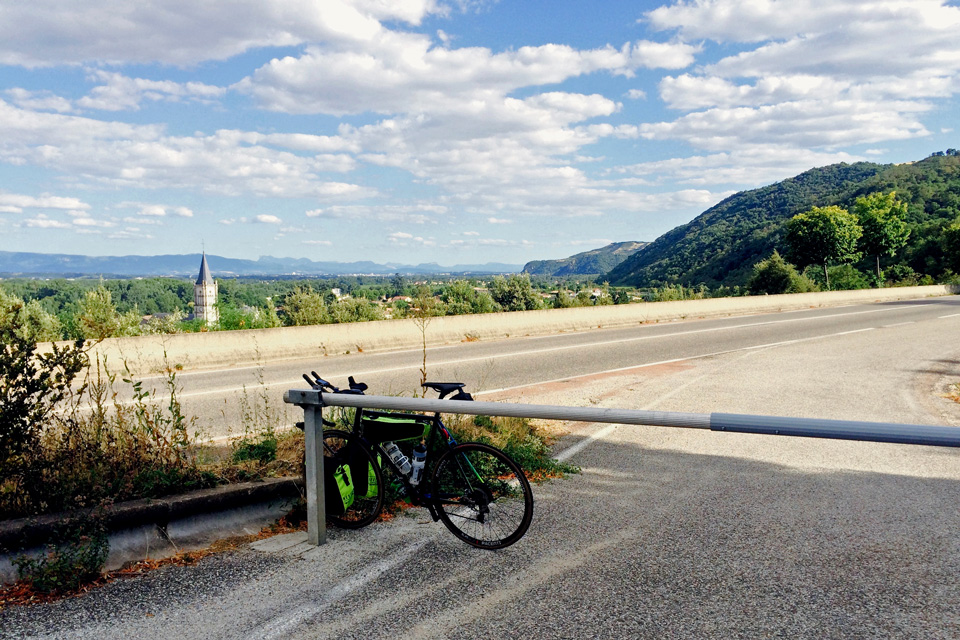
2 | You Are Never 'Lost'; You're Just Going The Wrong Way
Navigation is a key part of riding a bike, however, given the length of the TCR – around 4000 KM – you need to use a Garmin to follow the most efficient routes, otherwise you are off track. Rarely did I feel like I was exploring like you would on a cycle tour. Whichever route you take, the 4000km route is a long way to plot and you cannot investigate every road – there were some roads that I had to bail over the side of the barrier to escape; there were some I foolishly cycled which were more than likely prohibited. Either way, apart from the high gravel roads, I never really feel lost because taking the most efficient routes was so important for covering the distances – a lot of them were those boring, monotonous roads, which had a psychological impact, hindered my decision making, and you would always avoid if you were touring…
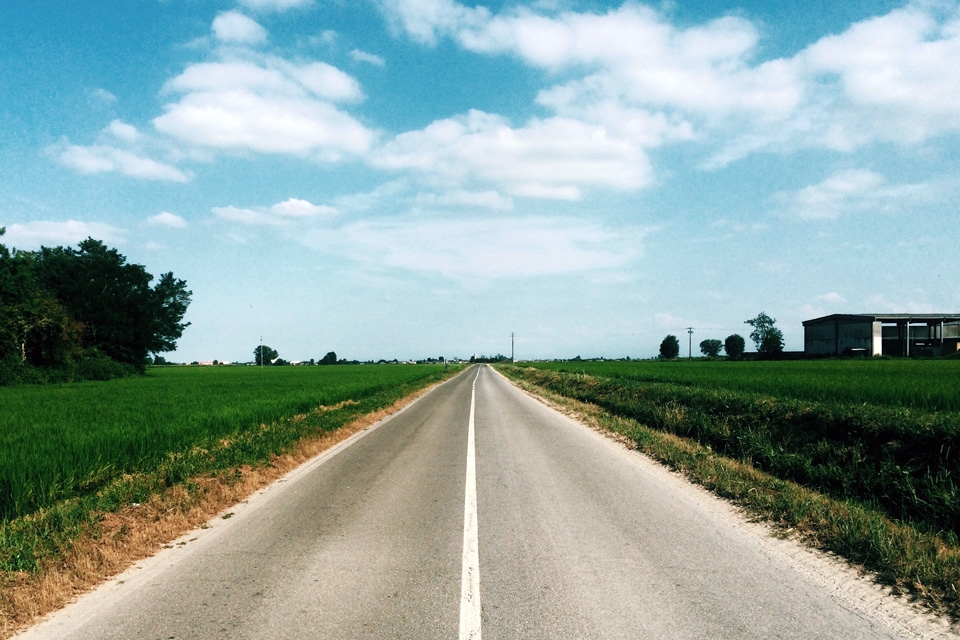
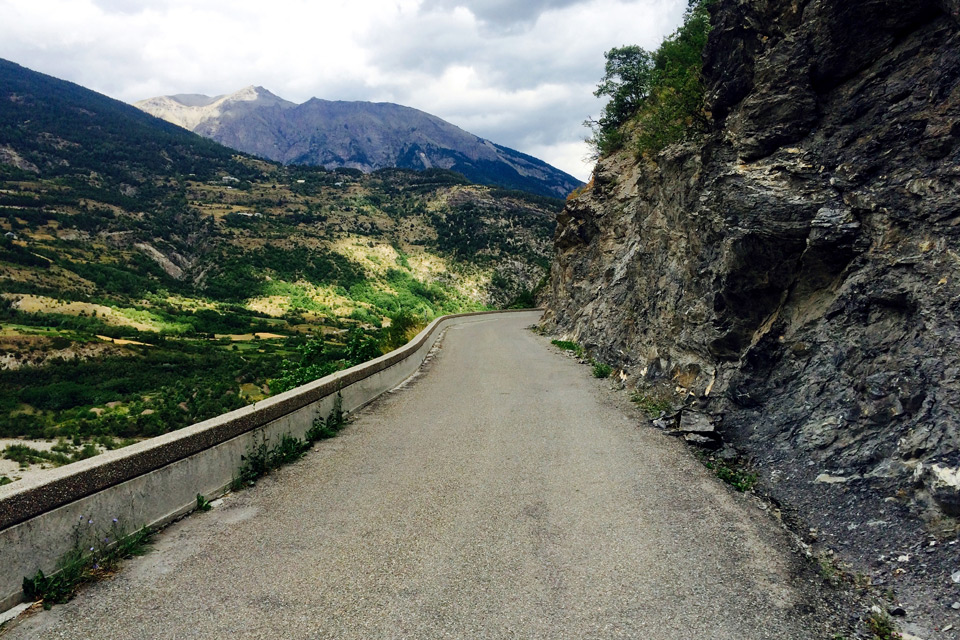
3 | Deliberation Wastes Time
When you’re touring you tend to have all the time in the world to go over options to any issues you encounter en-route. During an endurance race you will be faced with similar issues – you’ll probably have two or three not-ideal options, which you could spend ages deliberating over. But you cannot. Go with your gut feeling and stick with it.
On the third day I was pretty ill from something I ate, I spent ages hanging around a little village trying to work out what to do: knock on someone’s door; wait it out; try to pitch up for the night. In the end I wasted so much time trying to figure out what was the best option. If I’d stuck to my guns, stayed outside the village and slept I would have been far better off rather then wandering around in the early hours deciding what to do!
4 | Being Friendly / Talking To People Wastes Time
Everyone likes stopping for a chat, right? People are usually interested in what you are doing and you are happy to pause, interested in their local knowledge and stories. It even feels like a legitimate moment to rest. Nope, not during a race…
Of course, there were times when I spoke to people very briefly and they responded briefly in return; perfect. There were times when I reached out, people saw that and responded; that is what I needed. This point is really only focused at the times when I managed to get into full-blown conversations that I couldn’t politely remove myself from. Sometimes this works as a pick up when you’re not feeling great but be wary, it usually takes more valuable time than you first think.
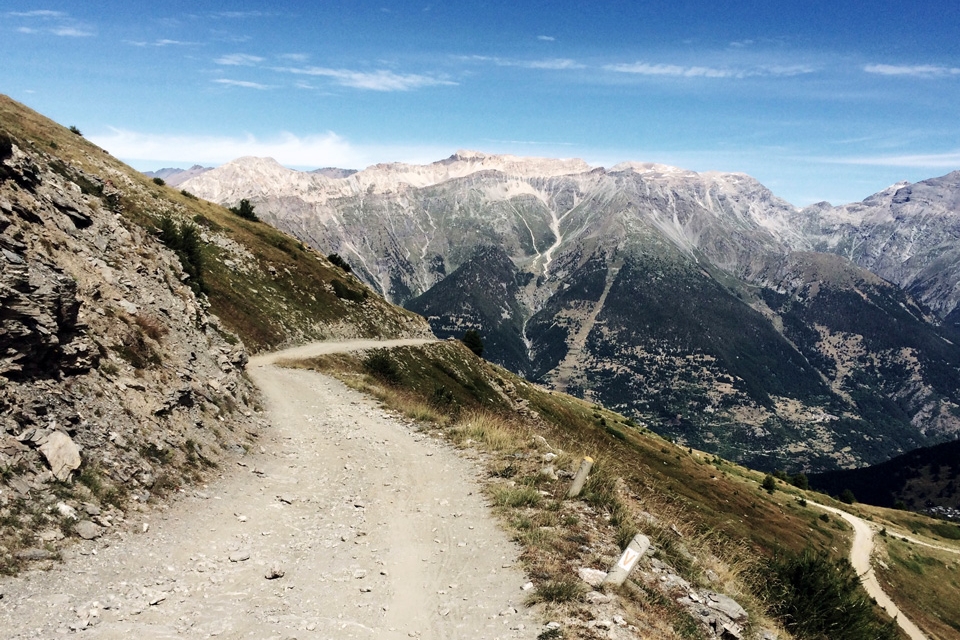
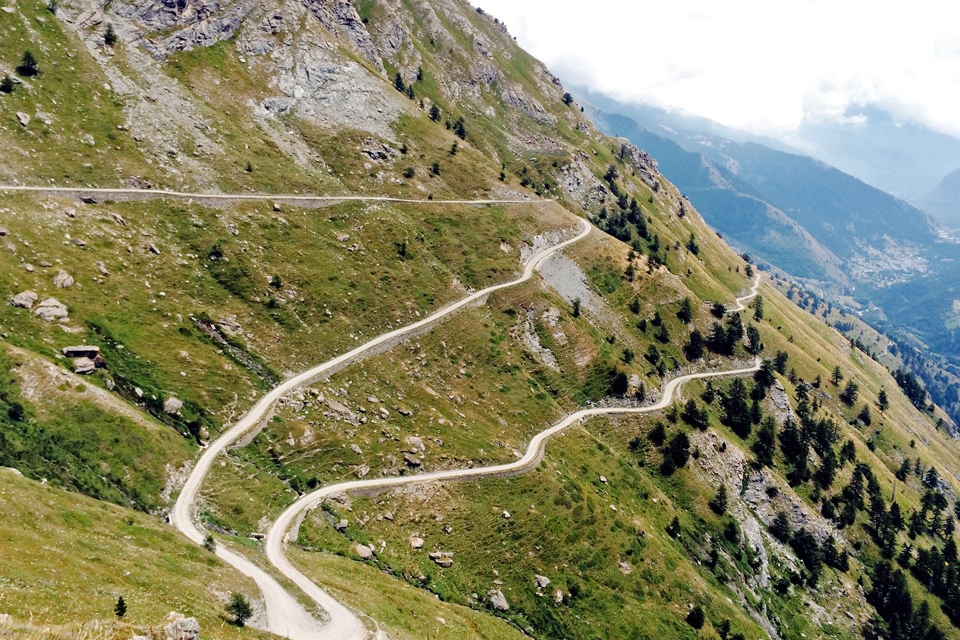
5 | Any Ol' Shelter Will Do
If you are racing, you’ll be travelling lightweight which likely means a bivvy setup. You might even sub out a sleeping bag for a down jacket.
The time, location and ability needed to put up a tarp is unnecessary – you can find decent shelter in more places that I expected. And, if it is raining, the chances are you’ll ride on until you can find some sort of shelter no matter how tired you are. As opposed to stopping putting up a tarp and setting up a proper camp, which is the norm on a cycle tour – even when camping or bivvying wild…
In the end, Tim decided to end his race in Croatia after riding 2500km in 11 days: Shermer’s Neck and swollen ankles meant things began to get dangerous, so enough was enough. The problems started occurring at the end of Strada dell’Assietta when he shredded a tyre wall – his hands had gone completely numb so couldn’t pull the tyre on and had to use his teeth.
__________
Follow the build up to the 2016 Edition of the Transcontinental Race over on the TCR website…